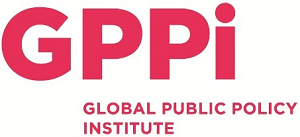
Photo: Gormé/Wikimedia Commons, CC BY-SA 3.0

Transatlantic relations are experiencing unprecedented turbulence. Since US President Donald Trump’s inauguration, Europe has been continuously bracing for the impact of his policies, including within the realm of economic security and critical technologies.
From imposing tariffs to regulating technology giants, Donald Trump’s agenda is deeply at odds with European priorities – so much so, that many on the continent now see “de-risking” from the United States as more pressing than addressing vulnerabilities vis-à-vis China. However, concerns about Chinese industrial overcapacities, economic coercion and tech-enabled military modernization persist and also seem to animate at least some of the Trump administration’s policies – suggesting that a basic rationale for US-EU cooperation could still be in place.
Does it still make sense to work towards transatlantic cooperation on economic security and critical technologies in this climate? What should stakeholders in both Europe and the US prioritize (political leaders to government bureaucrats, business, researchers, and civil society)? And how do US-EU relations feature in the broader context of a shifting global techno-economic landscape?
This event is hosted by the Global Public Policy Institute (GPPi) as part of the Bundesakademie für Sicherheitpolitik’s Deutsches Forum Sicherheitspolitik (DFS2025). We gratefully acknowledge support for our research on this area provided by the German Federal Foreign Office and Stiftung Mercator.
Line-Up:
- Janka Oertel, Director, Asia program, and Senior Policy Fellow, European Council on Foreign Relations
- Geoffrey Gertz, Senior Fellow, Energy, Economics, and Security Program, Center for a New American Security (CNAS)
- Moderation: Jakob Hensing, Research Fellow, Global Public Policy Institute
Date & Time: Wednesday, 7 May | 15:00 - 16:00 p.m. (CET)
Format: Online-Discussion via ZOOM
Location: Online
Language: English
Participation: Please click here to register (Google form by GPPi)
